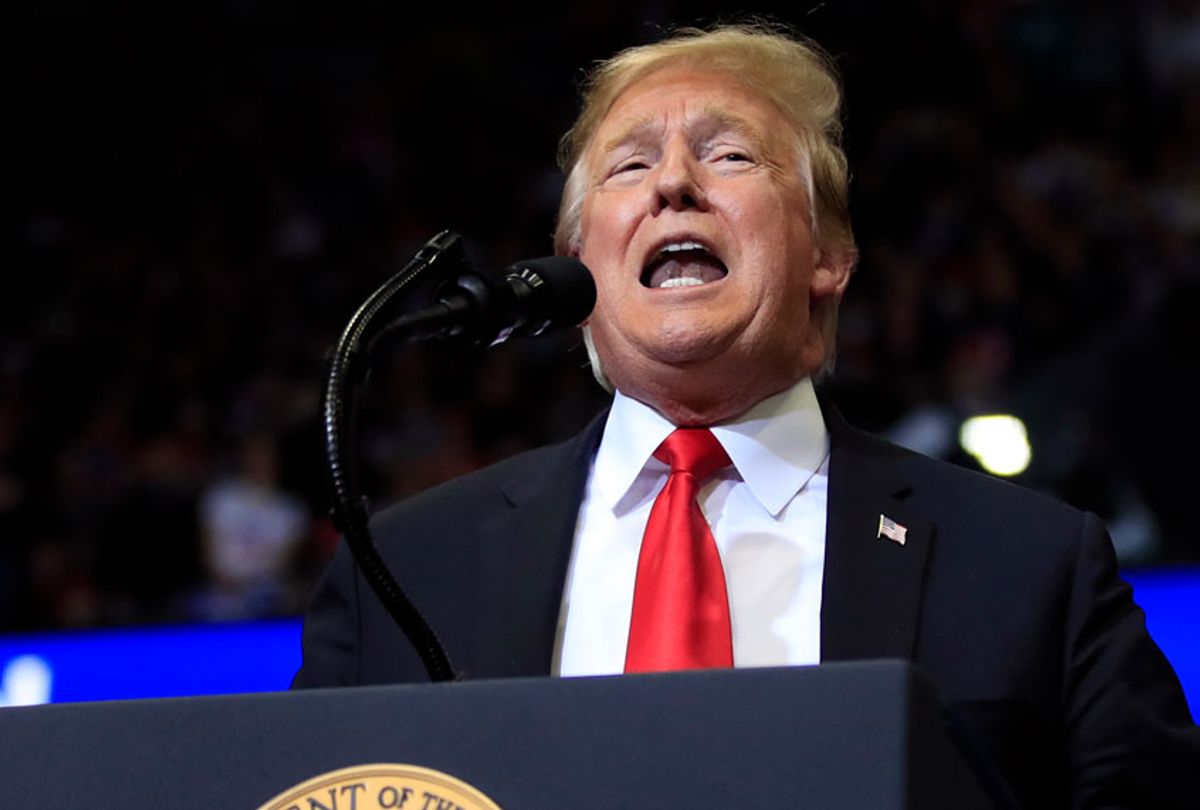As much as President Trump likes to (mis)represent the mainstream media as “the opposition party,” “fake news,” and even “the enemy of the people,” the truth is that he benefited greatly from news media coverage and reporting during the 2016 US presidential campaign.
As my co-author and I explain in "The Twitter Presidency: Donald J Trump and the Politics of White Rage" (Routledge, 2019), “the Trump campaign utilized television in several nontraditional ways that appear to have been more effective that TV ad buys.” This included hosting large, raucous campaign rallies that were aired in whole or in part on cable news, phoning into cable news programs, and tweeting outrageous remarks and demeaning comments on Twitter that were widely covered in the news. These three strategies greatly amplified Trump’s media presence and hateful rhetoric, earning him by some estimates as much as $5 billion in unpaid advertising.
Consequently, as the news media begins its coverage of the 2020 presidential campaign, it is absolutely crucial that journalists and news outlets not repeat the mistakes of 2016. As someone who has spent my career studying the intersection of media and rhetoric, I have identified five guidelines that the media should follow in reporting on President Trump during the 2020 campaign.
1. Eliminate unpaid advertising. The news media must stop covering Trump’s campaign rallies altogether. These events function exclusively as white nationalist propaganda for Trump’s base; they are explicit calls for political violence. Absent anything even remotely policy-oriented, these events are in no way newsworthy, and the media should not air them, report on them, or anything Trump says at them. Trump is extremely skilled at manipulating the media and he uses these events to set the news agenda, generate unpaid advertising, and disseminate his racist lies and wild conspiracy theories.
2. Do not cover Trump’s personal attacks on Twitter. A prominent feature of Trump’s use of Twitter is degrading and demeaning others. Trump is a bully who uses Twitter like a public schoolyard to insult, torment and intimidate others. This is not news, and it is imperative that the news media not be complicit in his cyberbullying. Under no circumstances should the news media cover Trump’s tweets attacking his opponents. Someone who consistently stirs racial panic and hatred should not be given a bullhorn.
3. Call lies lies. Throughout much of the 2016 campaign, the news media was reluctant to call Trump a liar, labeling his positions and statements misleading. There is a key difference between framing issues and facts in a positive but politically-slanted light and engaging in a systematic campaign of distortion and disinformation designed to deceive the American public. We are well past the point of Trump misleading the public. Trump and his entire administration are engaged in an ongoing campaign of propaganda, and the news media should treat it as such.
4. Directly confront charges of “fake news.” Through his authoritarian rhetoric, Trump has managed to convince his base that he is the only reliable source of information. This is dangerous and undemocratic, and the news media must aggressively call out Trump when he tries to undermine the authority of a free and independent press. The mainstream news media have an ethical obligation to educate the American public about what constitutes fake news, such as the Russian cyberterrorist attacks during the 2016 campaign. The news media must help the public understand that negative and unflattering news coverage does not constitute fake news. Labeling it as such is a tool of dictators.
5. Interview experts, not journalists and political pundits. In recent years, the mainstream news media has increasingly begun covering itself and its own reporting. Journalists interviewing journalists and political pundits is not news. It is self-congratulatory grandstanding. It simply must stop. There is no shortage of economic, legal, political and communication experts to help break down and assess the president’s actions and rhetoric. The news media must stop feeding anti-intellectualism by avoiding in-depth discussions with experts in favor of treating journalists like celebrities.
If the mainstream news media is unable to follow these simple guidelines, they will all but ensure the reelection of Donald Trump to a second term. The fourth estate exists to protect our democracy from the slide into autocracy, and it is high time they start performing that function.



Shares